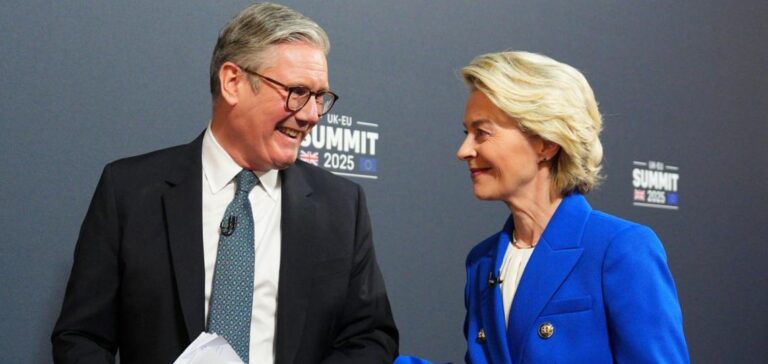The European Union (EU) and the United Kingdom jointly declared during a recent summit their intention to restart discussions aimed at restoring close cooperation in electricity trading. This decision follows a period of market separation resulting from Brexit, which ended in 2021 the full integration of the United Kingdom into the EU’s Internal Electricity Market (IEM). Both parties have emphasized their mutual interest in exploring concrete solutions allowing the UK to participate again in European trading platforms. The main objective is to enhance efficiency and optimize costs associated with electricity trading through existing interconnections.
Essential interconnections for electricity flows
Currently, nine electricity interconnections link Great Britain to the European Union markets. These infrastructures have a combined capacity of nearly 10 gigawatts (GW), allowing an annual transmission of approximately 80 terawatt-hours (TWh). Electricity flows vary daily, depending on market conditions determined by supply and demand, making Great Britain a net importer from France, Belgium, the Netherlands, Denmark, and soon Germany, while being an exporter to Ireland.
Current arrangements, established post-Brexit, rely on explicit auctions for transmission capacity, primarily managed through the Joint Allocation Office (JAO). This system significantly differs from the implicit market coupling previously in place. The lack of direct integration results in reduced efficiency in daily trading, particularly due to timing discrepancies between UK and EU auction schedules.
Towards a return of market coupling?
The bilateral summit clearly indicated that future cooperation could include “dynamic alignment” with European market rules. However, both parties stressed that any alignment should respect the United Kingdom’s constitutional specifics and parliamentary procedures. Likewise, the role of the Court of Justice of the European Union (CJEU) will need precise definition within a potential arbitration-based dispute resolution mechanism.
Initially, the withdrawal agreement signed in 2020 proposed a model called Multi-Regional Loose Volume Coupling (MRLVC) to manage electricity exchanges between the EU and the UK. However, progress on this matter remains limited, with several market players considering this solution less efficient than full market coupling.
Potential impact on carbon markets
In addition to the anticipated reintegration into electricity markets, discussions also include a potential alignment of the carbon emissions trading systems between the European Union and the United Kingdom. Such an initiative could exempt British electricity from penalties associated with the future EU Carbon Border Adjustment Mechanism (CBAM). Starting in 2026, electricity will be included in the EU’s CBAM, whereas the UK does not plan to include electricity in its own mechanism until 2027.
This context is particularly significant for British producers, who are already subject to the national Carbon Price Support (CPS) tax currently set at £18 per tonne of emitted CO₂. This tax adds to the cost of British carbon allowances (UK Allowances, UKA), directly impacting the price competitiveness of British electricity compared to the continental European market.
Price divergences and economic forecasts
Analysts at S&P Global Commodity Insights forecast that by 2035, the United Kingdom could reverse its current status from a net importer to a net exporter of electricity to continental Europe. Current prices reflect significant differences: British electricity for delivery in 2026 was recently assessed by Platts at £76.56/MWh (€91.09/MWh), compared to €88.58/MWh for Germany and €58.50/MWh for France, placing the UK currently in an intermediate position.
This complex pricing and flow dynamic underscores the economic and strategic relevance of the potential reintegration of the United Kingdom into European electricity trading mechanisms.






















